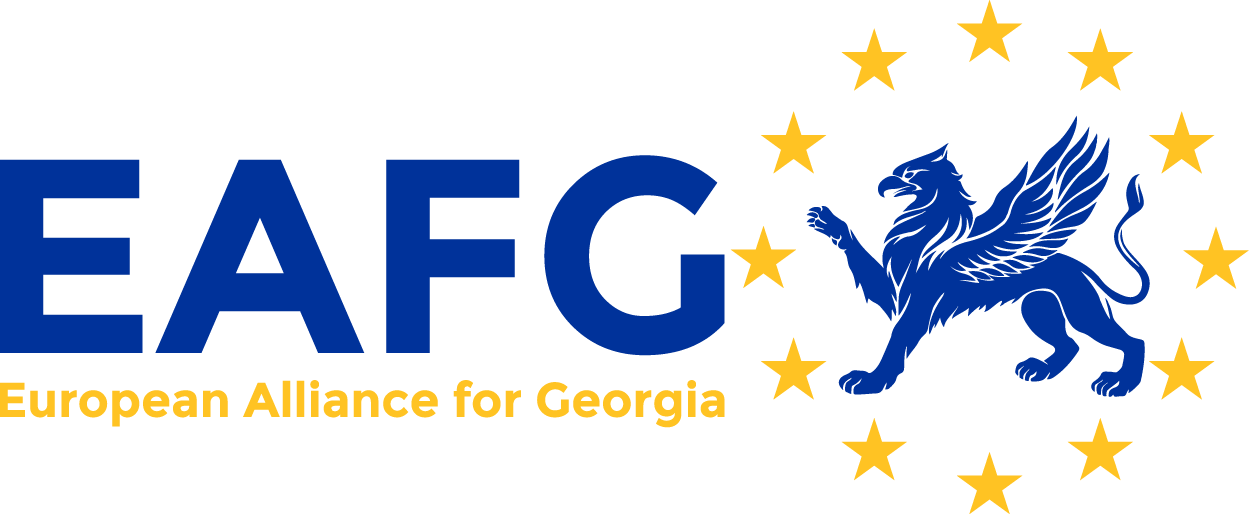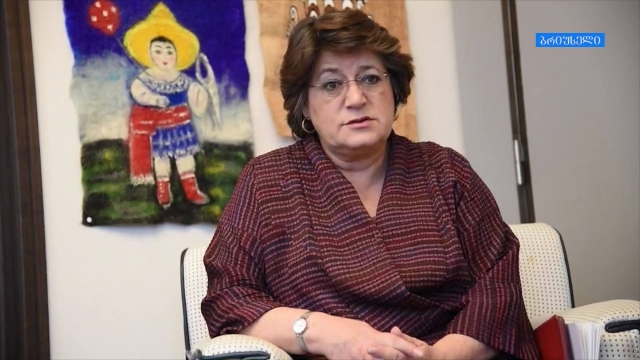MEP Gomes on the Tatunashvili Case
EXCLUSIVE INTERVIEW
The tragic events surrounding Archil Tatunashvili caused outrage not only in Georgia, but well beyond it – with the West calling for thorough investigation of the incident. Ana Gomes was one of many European Parliament members unable to hide their indignation whilst discussing the matter with GEORGIA TODAY.
It took 26 days for the de facto "South Ossetian" government to transfer Archil's body to the Georgian side of the boundary line, and there are very clear signs of violence on his corpse. What would be your assessment?
I expressed my concerns when it was announced that this Georgian citizen, Mr. Tatunashvili, had died at the hands of his captors. The de facto government in occupied South Ossetia are the occupiers, the Russians themselves. It’s really very disheartening to learn that only 26 days later was the country and the family able to recover his body. I know it was a very difficult situation for everyone in Georgia. The public was extremely outraged and I want to stress that the government was doing their best to recover his body. But it also shows the pattern that we’ve been seeing lately - ever more daring and aggressive actions on the part of Russia. It’s Russia that is behind whoever is [officially] in control of South Ossetia. I want to express my full solidarity with the family and all the people of Georgia who are alarmed and outraged by this incident. We’ll have the visit of the Security Defense Subcommittee delegation to Georgia very soon. I hope this will be an opportunity for European Parliament to give an updated approach to what is happening in Georgia and how this is not just affecting Georgia but also us - we care for Georgia, we remain in solidarity with Georgia, we do not accept these provocative actions by the Russian state which is occupying South Ossetia and Abkhazia. I think this is the time when the friends of Georgia must come together.
The government and the opposition adopted a resolution, similar to the Magnitsky List, called the Otkhozoria-Tatunashvili List, about the two murders that took place in the breakaway regions. It invokes sanctions against the people involved in the killings. Should we expect European bodies, member states, and other international organizations to adopt the same stance and show solidarity to Georgia by imposing the same sanctions on those people? Would that be a good step?
Absolutely. Back in 2013, in the report about the need to fight corruption and to link it with human rights violations, I advocated that the EU should adopt an overall Magnitsky Act to implement sanctions, targeted sanctions, on individuals responsible for basic violations of human rights such as in the case of Sergey Magnitsky or in the case of Mr. Tatunashvili. Of course, we are now actually seeing this; more and more people in the EU are also pressing for such targeted sanctions, sanctions that really hurt. And we see now for instance in Britain, because of the case of Mr. Skripal and his daughter, that Britain is seriously considering implementing targeted sanctions, freezing assets and so on. Of course, in the Skripal case, it will have to go up the hierarchy to Mr. Putin because whatever happened there could not have happened without a green light from the top.
It would be healthy for Georgia to take that same route. I'm quite heartened to see that the government and the main opposition were able to agree on it. I hope Georgia will have the strength to enact that selectively towards the people it knows are directly involved in this murder and other cases, because we hear that there are other cases too.
Yes, Georgia is fully entitled to demand cooperation from Europe and I stand ready to support it politically with European governments and European institutions. Often, we see that the people involved in major human rights violations at all levels invest the proceeds of their current activities in European countries. So, often, implementing your Magnitsky-type sanctions may not just require great action taken in Georgia, but very likely in European countries too, where these people have their assets invested. So, yes, I believe it’s very important and it will be quite meaningful for all of us if Georgia takes that stand.
There was a petition from a colleague of mine, a fellow Georgian journalist, that Moscow district in Tbilisi should be renamed 'Tatunashvili district.' There are some who support its symbolism and those who say it might provoke Russia. What do you think?
I can't really take a stance on this – this is something that Georgians themselves should decide on. But I can tell you that there will be many ways in which the Georgian people will have to express their outrage of Russia’s involvement in the murder of Tatunashvili. I understand those who want that reaction to be shown even in symbolic actions like this. I also understand those who say we should not be provocative. Actually, it’s not about being provocative, it’s about reacting. But once again, it’s up for Georgians to decide what the best reaction is.

By Vazha Tavberidze
The article was prepared in the scope of “Messages from Brussels” series, a project by European Alliance for Georgia, a Brussels-based advocacy organization dedicated to “Bringing more Georgia into Europe.”












